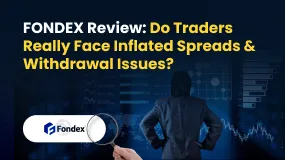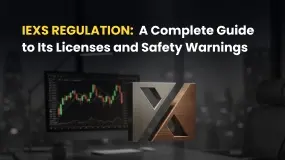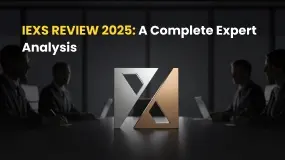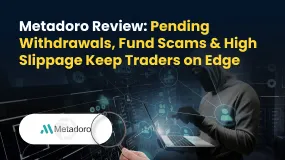简体中文
繁體中文
English
Pусский
日本語
ภาษาไทย
Tiếng Việt
Bahasa Indonesia
Español
हिन्दी
Filippiiniläinen
Français
Deutsch
Português
Türkçe
한국어
العربية
The Web3 Bubble is a Revolution in the Making
Abstract:A lot of people say it doesnt even exist yet, but web3 is still getting a lot of attention.

It‘s one of the most popular phrases being bandied around by Silicon Valley execs, with some of the world’s best known tech entrepreneurs arguing over its very definition. Its attracting huge amounts of money too, with investors injecting an incredible $30 billion into web3 startups over the last year. Celebrities are scrambling to jump on the bandwagon, paying millions of dollars to acquire the rights to cartoon apes and other digital tokens to represent themselves on social media.
With so much money being thrown around the web3 space recently, there‘s been a lot of talk of a bubble emerging. O'Reilly Media founder Tim O’Reilly, the man who coined the phrase “web2” many eons ago, penned a recent blog post in which he stated web3 is almost certainly in a bubble and that its way too early to get excited about the idea just yet. His thoughts were echoed by a similar article in the Financial Times and by bloggers such as CoinYuppie, to name just a few. The “web3 bubble” has often been likened to the “Dot.com bubble” that occurred in the late 1990s, when hundreds of highly valued Internet startups collapsed virtually overnight following years of growing investment in the then-nascent industry.
What‘s interesting about web3 is that it’s able to attract so much money despite most people not even being able to agree on exactly what it is. The term “web3” is shorthand for Web 3.0, which is usually, but not always, spelled with a capital “W”.
The idea is this: Web 1.0 was the original Internet that first emerged with the development of web browsers in the early 1990s and the first static websites that were mostly just informational. Web 2.0 emerged around a decade later with the rise of Internet giants such as Google and Facebook and concepts like social media.
Now, we‘re said to be on the cusp of Web 3.0, which is a vision of a future Internet where control of data, and therefore ownership, is more democratic. For many of its proponents, web3 represents a new and positive trend in the Internet’s evolution, one which will be more decentralized and lean heavily on things such as blockchain, NFTs, cryptocurrencies and the much-vaunted metaverse. Itll be an Internet where users have full control over their data and personal information, and a much higher degree of anonymity.
The idea of web3 was first introduced by the Ethereum co-creator Gavin Wood, who now heads up the Polkadot blockchain. His simple definition of web3, which he described back in 2014, is of an Internet with “Less trust, more truth”.
The Dot.com Bubble
It‘s not really surprising that many people equate the rise of web3 with the infamous dot.com bubble. It was a fairly momentous event that’s still in living memory for many of us. It was one of the craziest bubbles of recent times. From 1995 until 2000, investors poured millions of dollars into new Internet startups, believing they were on the verge of a new digital era. At one point during the bubble, the Internet sector grew by over 1,000% in just two years, equaling almost 6% of the U.S.s entire market capitalization and accounting for 20% of all its publicly traded equity volume.
With such incredible gains to be had, thousands of people borrowed money to invest in early-stage Internet firms to take advantage of that stunning growth.
It all came crashing down though. As with all bubbles, the result was a bloodbath, with the NASDAQ index hitting a peak score of 5,048.62 on March 10, 2000, before subsequently losing almost 80% of its value in the next two years. Numerous overvalued firms, most famously Pets.com, went out of business as the market lost over $7 trillion in value.

Disclaimer:
The views in this article only represent the author's personal views, and do not constitute investment advice on this platform. This platform does not guarantee the accuracy, completeness and timeliness of the information in the article, and will not be liable for any loss caused by the use of or reliance on the information in the article.
Read more

FONDEX Review: Do Traders Really Face Inflated Spreads & Withdrawal Issues?
Does FONDEX charge you spreads more than advertised to cause you trading losses? Does this situation exist even when opening a forex position? Do you witness customer support issues regarding deposits and withdrawals at FONDEX broker? Does the customer support official fail to explain to you the reason behind your fund loss? In this article, we have shared FONDEX trading complaints. Read on!

IEXS Regulation: A Complete Guide to Its Licenses and Safety Warnings
When choosing a broker, every trader's biggest concern is safety and trust: is it regulated? For IEXS, the answer isn't simply YES or NO. While the company says it's regulated by trusted authorities, looking closer shows a complicated and worrying situation with mixed evidence and serious risks. What they claim on the surface doesn't match up with official warnings, license problems, and many bad user experiences. This article gives you a detailed, fact-based look into IEXS regulations, breaking down their official licenses, what their trading platform is really like, and real stories from traders who have used it. Our goal is to give you the facts so you can make a smart decision about keeping your money safe.

IEXS Review 2025: A Complete Expert Analysis
Choosing the right forex broker requires careful research. IEXS, a broker that has been operating for 5-10 years, shows a mixed picture for traders. The company is based in the UK and claims to serve customers worldwide, offering many different trading options on the popular MT4 platform. However, when we look closely at its licenses and read what users say about it, we find serious problems that potential customers need to know about. This review gives you a complete analysis based on publicly available information, focusing on regulation, trading conditions, how well the platform works, and real experiences from users.

Metadoro Review: Pending Withdrawals, Fund Scams & High Slippage Keep Traders on Edge
Do you fail to withdraw your funds from your Metadoro forex trading account? Does the forex broker manipulate figures to cause you losses? Does the high slippage erode your capital and make it difficult for you to close your order at the optimum rate? These are some startling issues you and many other traders are facing on the Metadoro trading platform. In this Metadoro review article, we have shared some complaints for you to look at. Read on!
WikiFX Broker
Latest News
The Debt-Reduction Playbook: Can Today's Governments Learn From The Past?
Trillium Financial Broker Exposed: Top Reasons Why Traders are Losing Trust Here
FIBO Group Ltd Review 2025: Find out whether FIBO Group Is Legit or Scam?
Amillex Withdrawal Problems
Is INGOT Brokers Safe or Scam? Critical 2025 Safety Review & Red Flags
150 Years Of Data Destroy Democrat Dogma On Tariffs: Fed Study Finds They Lower, Not Raise, Inflation
CQG Partners with Webull Singapore to Power the Broker’s New Futures Trading Offering
【WikiEXPO Global Expert Interviews】Ashish Kumar Singh: Building a Responsible and Interoperable Web3
Trump: India\s US exports jump despite 50% tariffs as trade tensions ease
IEXS Review 2025: A Complete Expert Analysis
Currency Calculator




